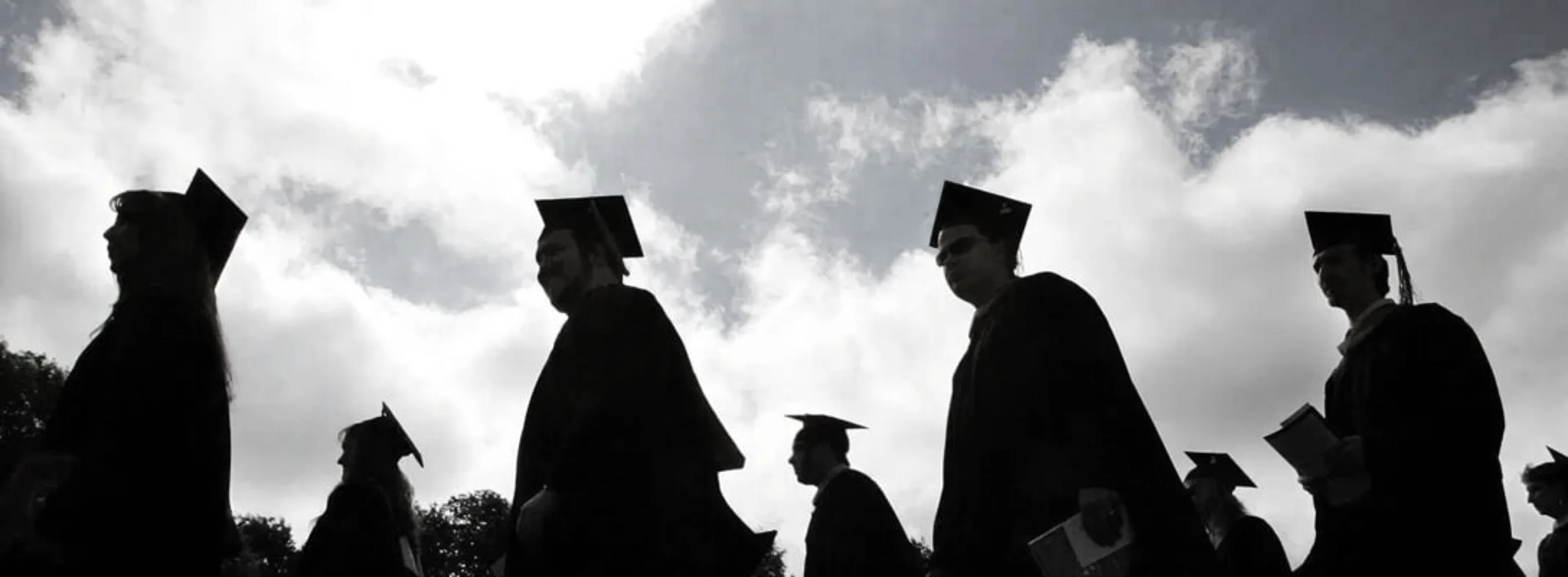The Cost of Living Crisis: How we're paying the price for years to come
13 June 2022

13 June 2022

The UK economy is in a state of crisis. Inflation has reached 9%, the highest rate in 30 years. Food, fuel and housing costs are rising at the highest rate since the 1980s. Yet despite increases across the board, not everyone is feeling the heat. A disparity is emerging between those who can afford to save and those who can barely get by. Our lowest earners, particularly those with little or no disposable income, will be hardest hit by rising costs. Proportionately, they will spend more of their income on essentials, such as food or energy, than the rich. In turn, they will have very little, if anything, left to stow away in their piggy banks.
We’ve all been in a situation where our earnings are low - working our first jobs, starting a new career, or studying for our future. We all know that this can be a daunting time and the current cost of living has only exacerbated that. Young people today, the lowest earners in society, are spending twice as much on fundamental living costs such as rent, mortgage payments and household bills, than the over-fifties. During the Covid-19 pandemic, they were also most likely to be furloughed or made redundant and any savings that they may have accrued will likely have been used through this turbulent time. With the furlough scheme now at an end, many will be without financial support once again.
Millennials today are not only less likely to get married than previous generations but are also more likely to delay marriage for financial reasons, preferring to achieve financial stability first.
Rising costs mean that low-income, single adult households will spend almost half of their income on gas and electricity alone. This will use up most, if not all, of the household’s income, leaving nothing leftover to save. Of those below retirement age, almost half now say that they cannot afford to save. It affects me too. It has taken me years of study to achieve a professional qualification which allows me to work a full-time job in a reputable industry. Yet by definition, I am living in fuel poverty - spending on average 10% of my monthly income on energy bills. This is not an issue that can be avoided by full-time work and professional qualifications. The impact of the rising cost of living is being felt on a much wider scale.
We all want to have savings in the bank. Not only do they provide a safety blanket for the rainy days, but they help us to acquire the privileges that we are encouraged to aim for in the increasingly materialistic world in which we live. Traditional views encourage us to go to university, to marry, and to buy our first home. Yet each of these aspirations require a hefty savings pot which many of us are simply unable to obtain.

We are at an age where we are told to knuckle down and work hard so that we can earn more and save for our future. That we should start saving for our first home; invest in our pensions; and take on a side hustle for some extra cash. If there is extra cash to splash, we ought to increase our pension contributions if we want to retire early or invest in stocks and shares. If we want children, we should be earning more and putting away funds for their education. If we want a certain lifestyle - a big house, holidays, gym memberships, a dog - then we will need to factor in some more money for that. If we want to retrain or invest in further study, we had better save a few extra grand for the fees –but don’t forget to have spare savings for an unexpected leak or redundancy. We are the generation who are expected to put in the graft to achieve certain milestones, and yet we simply cannot achieve these because the money we earn is all used up on living now, rather than being invested for the future. There is a direct correlation between our age and the milestones that are expected of us, and yet it is our age which limits our ability to save and fulfil those expectations.
Take marriage for example. Millennials today are not only less likely to get married than previous generations, but are also more likely to delay marriage for financial reasons, preferring to achieve financial stability first. The same can be seen in respect of home ownership. In the early 1980s, over 62% of 25 to 34-year-olds were homeowners. However by 2012, this had reduced to less than 43%. With low incomes and massive expenditure, it is not surprising that now only 28% of the young actually own their own home, despite their preference to buy rather than to rent. With house prices on the rise, the average house price in the UK currently sits at £273,762. This means that a first-time buyer obtaining a 95% mortgage would need to save on average over £13,500 for a deposit. In the current economic climate, saving this amount of money is, for many, simply not feasible. As a result, our generation is less likely than previous generations to get on the property ladder, and those who do are likely to do so later on in life.
Without the funds to buy, many of us are paying a pretty penny for a roof over our heads. Today, renting a property will set you back on average just over £1,000 per month - an average monthly increase of 8.3% from 2021. For some of us, this takes up more than half of our monthly income. I find it particularly frustrating, knowing that I could be paying half of what I pay on rent towards a monthly mortgage payment instead, if I could only save for a deposit. Yet with rent consuming such a large portion of our income for a prolonged period of time, it becomes increasingly difficult to set funds aside. Some may consider relocating to somewhere cheaper. However, the cost of hiring a removal company, putting down a deposit, and taking time off work are all privileges that only those with extra cash lying around can afford. In addition, moving away from the city may mean a longer commute to work and with the cost of fuel and train travel also hitting record highs, the whack to our wallets becomes almost inescapable.
As if to add further insult to injury, the average university graduate in 2020 will have left university owing £45,000 in student debt. With student loan contributions being collected at source, graduates have no choice but to take a continual hit to their income until the loan is eventually paid or written off. With a decrease in the repayment threshold of student loans from £27,200 to £25,000 and plans to extend the loan repayment period from 30 to 40 years, graduates can expect to pay 9% of their earnings towards loan repayment throughout their working life and into their sixties.

Saving money whilst studying has also become an impossible task for many - with around a quarter of students reporting that they have just £50 to live on each month. Maintenance loans are available to support those in need, however the loans on offer are often insufficient, with 50% of students reporting that the loan does not cover all of their living costs. If you, like me, can only afford an education by relying on maintenance loans, then you will likely struggle to save during your studies and will also take a reduced income for the rest of your working life simply for the privilege. First generation students like me go to university in the hope of bettering their job prospects and escaping poverty. Yet with higher education limiting the ability to save both during study and thereafter, the graduate premium is restricted for those coming from disadvantaged backgrounds. With two-thirds of Brits now viewing university as an unaffordable luxury, there is a serious risk that income inequality will continue to grow.
The impact of rising costs is affecting more than just the physical sums in the bank. With little-to-no disposable income, our mental health has also been thrashed. It only takes a few scrolls on my social media feed to see my peers holding the keys to their first house, celebrating a recent promotion, or planning their wedding day - further fuelling the belief that I am somewhat lagging behind. It is completely understandable that we may feel stressed, overwhelmed or embarrassed by the lack of money in the bank and the feeling that we cannot achieve these milestones. In the last decade, universities saw a 450% increase in the number of student mental health declarations, with approximately two thirds of students reporting a mental health condition caused by financial pressure. Even if you are not in poverty, just the fear of financial instability can have the same detrimental impact on your mental health as poverty itself. The consequences of poor mental health are that people may struggle to attend work and stay on top of their finances - with 63% of people with mental health problems struggling to make financial decisions whilst unwell. As a result, many of us will end up in a vicious cycle whereby our stress and unhappiness at the inability to save money actually leads to further financial difficulty.
Young people are in desperate need of more widely-available maintenance grants, affordable housing, greater rent protection measures and proposals which would better support our income and help us save. Yet the proposals introduced by the government to tackle the cost of living crisis have failed to take young people into account. The recently announced support package will be welcomed by those struggling with the rising cost of energy bills. However, this is a temporary solution for issues that will be impacting us for a lifetime. Other proposals also fall short. With many students and young professionals studying in the city or choosing to live at home to keep costs down, only a privileged few will own a car and thus reap the benefits of the proposed cut to fuel duty. The increased National Insurance threshold will be of no benefit to people in full or part-time education, or part-time employment, who were already earning too little to contribute. Furthermore, the proposed Council Tax rebate of £150 fails to take account of the disparity between those feeling the effects of the current crisis and those who are still able to save. It implements a broad-brush approach; paying all households within Council Tax bands A to D, rather than targeting those households who need assistance most. Not to mention the fact that it is of no benefit to full time students who are exempt from paying Council Tax in the first place.
If adequate support is not put in place now, then the consequences of the colossal costs imposed on our generation today will have a knock on effect on our future. The value of our investments will be adversely affected and we will be forced to work into our late seventies, unable to retire any earlier. The government must do more to recognise the dire reality that we are facing. They cannot sit back and rely on social media to grant us a pathway to fame and fortune.
Young people today are underpaid, with wages constantly lagging behind the inflation rate. The lowest earners in society are living and working in real-time through the devastating economic impact of Brexit, the Covid-19 epidemic and Russia’s invasion of Ukraine. Unprecedented price increases are disproportionately affecting the younger generation and yet we have been completely overlooked in the government’s support scheme. The reality is that many of us are unable to pay bills and afford housing, never mind being in a position to save money and fulfil the traditional milestones of higher education and buying a home. It saddens me, that by being unsupported and unable to save for our future, our generation will pay the price of this crisis for the rest of our working lives. When every day is a rainy day, we are no longer saving; we are surviving.
Written by
Hannah MitchellPocket-sized lawyer and adventurer hailing from Edinburgh. Happiest when being creative and exploring the outdoors.
Read next
I'm British. India is a better country than the U.K.

Connor McIntyre
Landlords are parasites and you're the host

Sean Ryan
How will we study at university when we can't afford to live?

Archie Rankin
Weekly emails
Get more from Hannah
The Fledger was born out of a deep-seated belief in the power of young voices. Get relevant views on topics you care about direct to your inbox each week.
Write at The Fledger
Disagree with Hannah?
Have an article in mind? The Fledger is open to voices from all backgrounds. Get in touch and give your words flight.
Write the Contrast